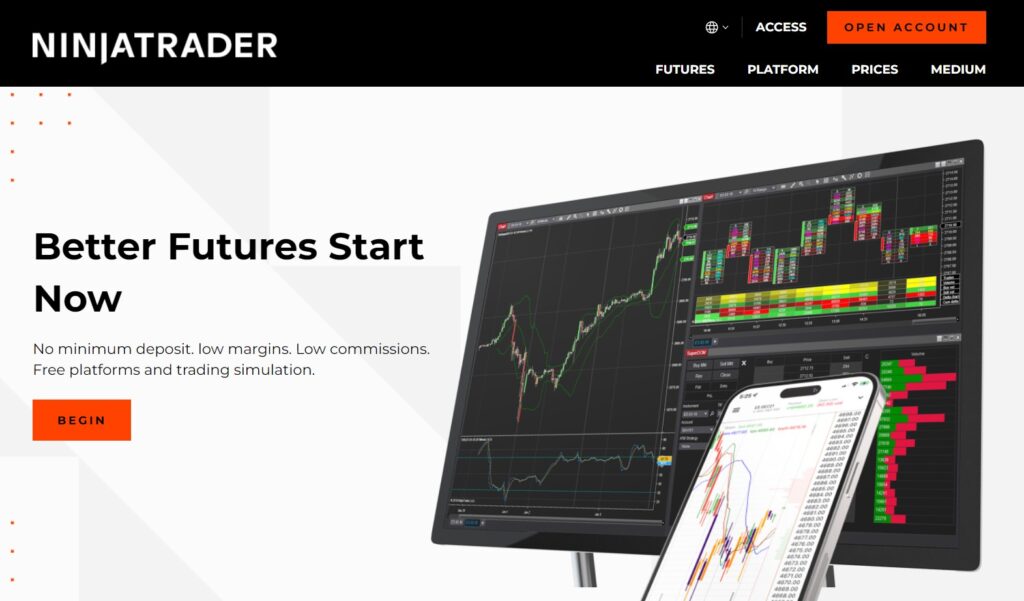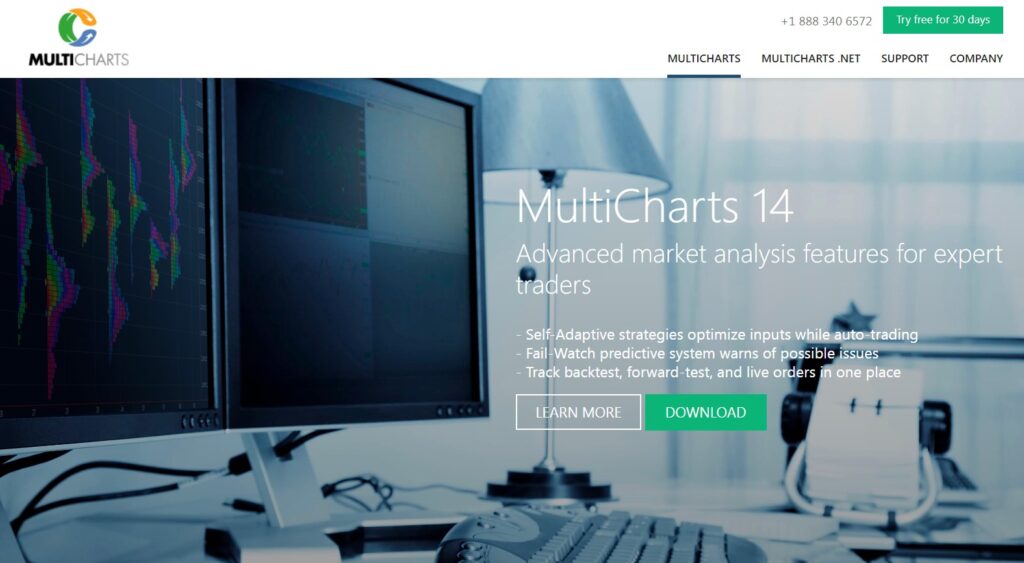As the world of Forex trading continues to evolve, traders are increasingly turning to automated trading platforms to help them take advantage of market trends and execute trades more efficiently. Automated trading platforms not only make the trading process more streamlined but also help traders develop more sophisticated trading strategies.
In this article, we will discuss some of the best trading platforms for automated trading, including Metatrader, Interactive Brokers API, NinjaTrader, MultiCharts, and other notable platforms. We will also cover programming languages to learn for each platform and discuss the advantages and disadvantages of each platform.

1. Metatrader
Metatrader is one of the most popular and widely used trading platforms for both manual and automated trading. Developed by MetaQuotes Software, Metatrader is available in two versions: MetaTrader 4 (MT4) and MetaTrader 5 (MT5). Both versions support automated trading using Expert Advisors (EAs), which are custom-built trading algorithms that can execute trades on your behalf based on predefined rules and strategies.

Programming languages:
To create EAs for Metatrader, you will need to learn MQL4 for MT4 and MQL5 for MT5. Both languages are based on C++ and are relatively easy to learn, especially for those with prior programming experience.
Advantages:
Metatrader is known for its user-friendly interface, extensive range of technical analysis tools, and a vast online community that provides support, resources, and third-party EAs. Additionally, Metatrader is compatible with a wide range of brokers, making it a popular choice for traders worldwide.
Disadvantages:
One of the downsides of Metatrader is its limited compatibility with other programming languages and platforms. This means that if you switch to another platform, you may have to rewrite your EAs from scratch. Moreover, given the popularity of Metatrader, the market for EAs can be saturated, making it difficult to find unique and profitable strategies.
2. Interactive Brokers API
Interactive Brokers (IB) is a well-known broker that offers a powerful and versatile API (Application Programming Interface) for traders who want to develop automated trading systems. With the Interactive Brokers API, you can connect your custom-built trading software directly to the IB trading platform, allowing you to execute trades and manage your portfolio in real-time.

Programming languages:
The Interactive Brokers API supports multiple programming languages, including Java, C++, Python, and .NET (C#). This makes it an excellent choice for traders with diverse programming backgrounds or those looking to learn a new language.
Advantages:
One of the main advantages of using the Interactive Brokers API is the flexibility it offers in terms of programming languages and trading software. Additionally, IB provides a wide range of trading instruments, including stocks, options, futures, and forex, making it suitable for traders with various trading preferences.
Disadvantages:
The main drawback of using the Interactive Brokers API is the complexity involved in setting up the API connection and developing custom trading software. Moreover, Interactive Brokers’ commissions and fees can be higher compared to other brokers, which may impact your trading profitability.
To help you get started with automated trading, we’ve compiled a list of some tips for success. be sure to check out our article: “9 Tips for Successful Automated Trading“.
3. NinjaTrader
NinjaTrader is another popular trading platform that supports automated trading through its proprietary NinjaScript language. NinjaTrader is known for its advanced charting and analysis tools, as well as its high-performance backtesting and optimization capabilities.

Programming languages
To develop automated trading strategies for NinjaTrader, you will need to learn NinjaScript, which is based on C#. If you are already familiar with C#, learning NinjaScript should be relatively straightforward.
Advantages
NinjaTrader offers a comprehensive suite of tools and features for automated trading, including advanced order management, trade simulation, and performance analysis. Moreover, NinjaTrader has a strong online community and extensive third-party add-on ecosystem, providing traders with a wealth of resources and support.
Disadvantages
The main disadvantage of NinjaTrader is its limited compatibility with other trading platforms and programming languages. If you decide to switch platforms, you may need to rewrite your automated strategies from scratch. Additionally, while NinjaTrader offers a free version with limited features, unlocking its full potential requires purchasing a lifetime license or subscribing to a monthly plan.

4. MultiCharts
MultiCharts is a powerful trading platform that supports automated trading through its EasyLanguage scripting language. MultiCharts is known for its advanced charting capabilities, high-speed backtesting, and optimization features, making it an excellent choice for traders looking to develop and test complex trading strategies.

Programming languages
To develop automated trading strategies for MultiCharts, you will need to learn EasyLanguage, which is based on Pascal. EasyLanguage is relatively simple to learn, especially for those with prior programming experience.
Advantages
MultiCharts offers a wide range of features, including advanced charting, extensive backtesting capabilities, and compatibility with various data feeds and brokers. Moreover, MultiCharts supports both EasyLanguage and .NET scripts, providing traders with added flexibility when developing their strategies.
Disadvantages
MultiCharts can be relatively expensive, with a monthly subscription or a one-time purchase required to access its full range of features. Moreover, as with other platforms, the limited compatibility of EasyLanguage with other platforms may require rewriting your trading strategies if you decide to switch.
5. Other Notable Platforms
Apart from the platforms discussed above, there are several other trading platforms that support automated trading. These include:
- TradeStation: A well-established platform that supports automated trading through its EasyLanguage scripting language, similar to MultiCharts.
- cTrader: A relatively new platform that supports automated trading through its cAlgo language, which is based on C#.
- QuantConnect: An online platform that supports automated trading through its LEAN algorithmic trading engine, which is compatible with multiple programming languages, including Python, C#, and F#.

Conclusion
Choosing the best trading platform for automated trading depends on your individual needs, trading preferences, and programming skills. Metatrader, Interactive Brokers API, NinjaTrader, and MultiCharts are all excellent options, each with its own unique features and advantages. By considering the programming languages, compatibility, and features of each platform, you can select the one that best aligns with your automated trading goals and strategy.
Boost Your Trading Success! Explore Our VPS Plans
© Dipgate







